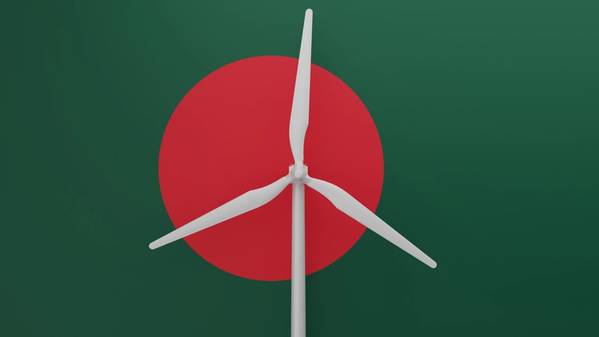
Denmark's green investment proposal valued at USD 1.3 billion for developing the country's first 500 MW utility-scale offshore wind energy project has received approval in principle from the Bangladesh government to carry out a detailed feasibility study and implement the first phase of development with site exclusivity in the next 3 years, Bangladesh's Summit Group has informed.
Denmark's Copenhagen Infrastructure Partners (CIP), Copenhagen Offshore Partners (COP) in association with Bangladesh's Summit Group had submitted the foreign direct investment (FDI) proposal in July, 2023.
The proposed project site is located offshore of Cox's Bazar district. When operational, the 500 MW (installed) wind energy project would generate electricity, which would be supplied directly to the national grid via an onshore substation to homes and businesses.
Summit said that the project comes at a crucial point in time for Bangladesh as despite ambitious clean energy targets, the country remains heavily reliant on fossil fuel imports, a comparatively costly power source due to global inflation-related price shocks.
"Bangladesh therefore needs to rapidly develop utility-scale renewable energy projects, while simultaneously adapting to climate resilience technologies to support continued economic growth and eliminate 'absolute poverty' by 2041," Summit said.
"With the Institute for Energy Economics and Financial Analysis (IEEFA) projecting an annual requirement of USD 1.7 billion in funding for the green transition, this multibillion-dollar proposal from Summit, CIP, and COP may kickstart a new wave of foreign and domestic investments, driving Bangladesh towards a truly climate-prosperous future," Summit said.
According to Summit, once implemented, the offshore wind project will be the first of its kind in Bangladesh—and possibly in South Asia—enabling a "technology-transfer" that would accelerate the learning curve for a nascent industry and reduce technological barriers to entry for future projects.
The preliminary study findings suggest that hundreds of direct and indirect jobs would be created during the construction phase, in addition to dozens of high-skilled permanent positions for the 30-year operational phase of the project, Summit said.